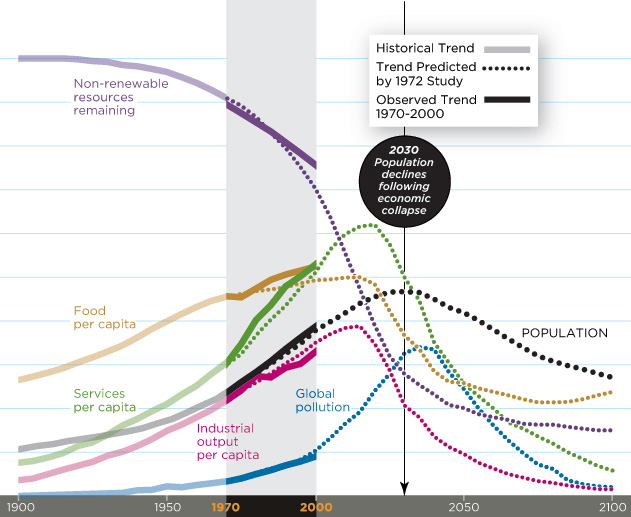
Chart Sources: Meadows, D.H., Meadows, D.L., Randers, J. and Behrens III, W.W. (1972) / Linda Eckstein
by Mark Strauss - Smithsonian Magazine - April 2012
Recent research supports the conclusions of a controversial environmental study released 40 years ago: The world is on track for disaster. So says Australian physicist Graham Turner, who revisited perhaps the most groundbreaking academic work of the 1970s,The Limits to Growth.
Written by MIT researchers for an international think tank, the Club of Rome, the study used computers to model several possible future scenarios. The business-as-usual scenario estimated that if human beings continued to consume more than nature was capable of providing, global economic collapse and precipitous population decline could occur by 2030.
(GO TO THE SMITHSONIAN MAGAZINE ARTICLE)
Limits to Growth: The 30-Year Update
The Club of Rome
Recent Comments